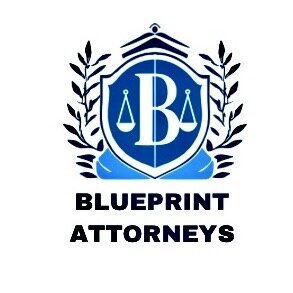Best Public-Private Partnerships (PPP) Lawyers in Aba
Share your needs with us, get contacted by law firms.
Free. Takes 2 min.
List of the best lawyers in Aba, Nigeria
About Public-Private Partnerships (PPP) Law in Aba, Nigeria
Public-Private Partnerships, commonly known as PPP, involve collaboration between government entities and private sector organizations to finance, construct, and operate projects or services that would traditionally be provided by the public sector. In Aba, Nigeria, PPPs play a crucial role in driving infrastructure development, urban renewal, and improvements in public services such as healthcare, education, energy, and transportation. The legal framework for PPPs aims to facilitate investment, mitigate risks, and ensure that projects align with local priorities and regulations.
Why You May Need a Lawyer
Engaging in a Public-Private Partnership can be complex, involving intricate agreements, regulatory compliance, and potential disputes. You may need a lawyer in the following situations:
- Reviewing or drafting PPP contracts and agreements to protect your interests.
- Negotiating terms with government agencies or private partners.
- Understanding your rights and obligations under local PPP laws and policies.
- Ensuring compliance with procurement and bidding procedures.
- Managing issues related to land use, permits, or environmental regulations.
- Resolving financing, payment, or revenue-sharing disputes.
- Addressing concerns about project delivery, late completion, or breaches of contract.
- Seeking remedies in case of termination or restructuring of PPP arrangements.
Local Laws Overview
PPPs in Aba, Nigeria are governed by a combination of federal legislation, state policies, and local bylaws. Key aspects of the legal environment include:
- The Infrastructure Concession Regulatory Commission (ICRC) Act establishes guidelines for PPPs at the federal level and often influences state and local projects.
- Abia State, where Aba is located, has PPP policies focused on encouraging private sector participation in major projects.
- The Aba City Authority and local government regulations may apply to permits, planning approvals, and land acquisition.
- PPP projects must comply with national procurement standards to ensure transparency and competitive bidding.
- Environmental Impact Assessment (EIA) is required for many infrastructure projects before partnerships can proceed.
- Parties must clarify responsibilities for financing, construction, operation, risk allocation, and maintenance in all agreements.
Frequently Asked Questions
What is a Public-Private Partnership (PPP)?
A PPP is a collaborative arrangement between government and the private sector to finance, build, and operate projects or provide public services.
Are PPPs legal in Aba, Nigeria?
Yes, PPPs are legal and recognized under Nigerian federal law and Abia State policies, provided they comply with relevant regulations.
What types of projects are commonly executed through PPPs in Aba?
Common projects include roads, public buildings, markets, energy facilities, water treatment plants, and health or educational infrastructure.
Who are the parties typically involved in a PPP?
Generally, a PPP involves a government agency (federal, state, or local) and one or more private sector companies.
How do I participate in a PPP as a private company in Aba?
You must respond to calls for proposals, meet eligibility criteria, and participate in transparent bidding processes as outlined by relevant authorities.
What is the role of the Infrastructure Concession Regulatory Commission (ICRC)?
The ICRC regulates federal PPP projects, ensures compliance, and provides guidance on best practices, often influencing local and state PPPs.
Do I need government approval to start a PPP project in Aba?
Yes, government approval is required, including compliance with procurement, land use, and environmental regulations.
What are some risks involved in PPPs?
Risks may include financial shortfalls, delays, regulatory changes, disputes between parties, and unforeseen environmental impacts.
Can a lawyer help if my company is already in a PPP dispute?
Yes, a lawyer can help resolve disputes through negotiation, arbitration, or litigation, and ensure your rights are protected under the law.
What is the duration of a typical PPP agreement in Aba?
PPP agreements can vary widely in duration, typically ranging from 5 to 30 years, depending on the project's size and nature.
Additional Resources
If you are seeking further information or support, consider the following resources:
- Infrastructure Concession Regulatory Commission (ICRC) - National oversight for PPP project regulation and guidance.
- Abia State Ministry of Works and Abia State Public-Private Partnership Office - Local regulatory authorities for PPPs in Aba.
- Nigerian Investment Promotion Commission (NIPC) - For information on investment in PPP projects.
- Nigerian Bar Association (NBA) Aba Branch - For referrals to qualified legal professionals experienced in PPP law.
Next Steps
If you need legal assistance related to Public-Private Partnerships in Aba, Nigeria, consider these steps:
- Gather all relevant documents and information about your PPP project, contract, or concern.
- Consult with a lawyer experienced in PPP law and practices in Aba or Abia State.
- Clearly describe your objectives, challenges, and any specific questions you have for your legal advisor.
- Follow your lawyer's recommendations on negotiations, regulatory compliance, or dispute resolution.
- Keep records of all communications, agreements, and official approvals related to your PPP activity.
Proper legal guidance can help ensure your rights, investments, and interests are effectively protected throughout any Public-Private Partnership in Aba, Nigeria.
Lawzana helps you find the best lawyers and law firms in Aba through a curated and pre-screened list of qualified legal professionals. Our platform offers rankings and detailed profiles of attorneys and law firms, allowing you to compare based on practice areas, including Public-Private Partnerships (PPP), experience, and client feedback.
Each profile includes a description of the firm's areas of practice, client reviews, team members and partners, year of establishment, spoken languages, office locations, contact information, social media presence, and any published articles or resources. Most firms on our platform speak English and are experienced in both local and international legal matters.
Get a quote from top-rated law firms in Aba, Nigeria — quickly, securely, and without unnecessary hassle.
Disclaimer:
The information provided on this page is for general informational purposes only and does not constitute legal advice. While we strive to ensure the accuracy and relevance of the content, legal information may change over time, and interpretations of the law can vary. You should always consult with a qualified legal professional for advice specific to your situation.
We disclaim all liability for actions taken or not taken based on the content of this page. If you believe any information is incorrect or outdated, please contact us, and we will review and update it where appropriate.









